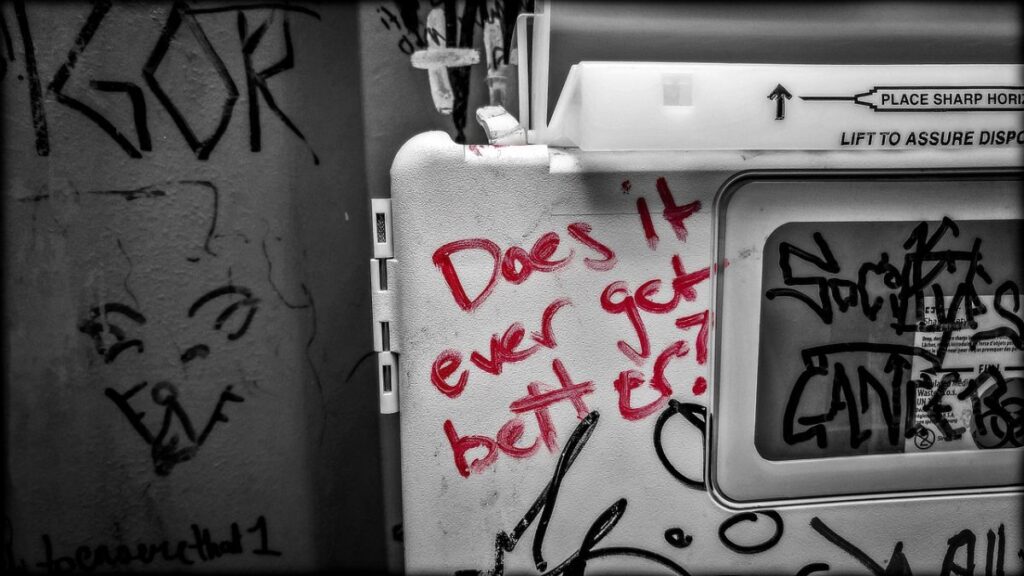Taking the first step toward recovery is powerful. For many, that journey begins with alcohol detox in Chicago, where professional support ensures a safe and structured transition into sobriety. But what does that experience really look like? Walking through the doors of a rehab center for the first time can feel overwhelming—yet it can also be a life-changing opportunity.
From medical evaluations to therapy sessions, every step is designed to help you reclaim balance, clarity, and control. Knowing what to expect during your first alcohol detox can ease your mind and prepare you for success. So, what happens during those first critical days, and how can you get ready for the process? Let’s explore together.
Drug and Alcohol Rehab Near Me: What to Prepare
Preparation sets the tone for your recovery journey. Just as an athlete prepares for game day, bringing the right items helps you stay comfortable and focused during treatment. Think of this as packing for renewal rather than routine.
Here’s what most inpatient programs recommend you bring:
- Comfortable clothing: Pack casual layers, sneakers, and sleepwear for about a week.
- Essential documents: A valid ID, insurance card, and medical prescriptions in original bottles.
- Personal hygiene products: Only sealed, alcohol-free items are permitted.
Studies show that structure and familiarity improve resilience during treatment (National Institute on Drug Abuse, 2022). By packing essentials—but not overpacking—you reduce stress and create mental space for healing. Many people also bring journals, books, or meditation aids to reflect between sessions.
Wouldn’t it feel empowering to walk in knowing you’re ready for this change? A little preparation goes a long way in easing nerves before your alcohol detox in Chicago begins.
Inpatient Drug Rehab Centers: What Happens
Once you arrive, the process unfolds with compassion and care. Intake is usually the first step. You’ll meet with staff for a health evaluation, discuss your medical history, and share your goals for recovery. Research shows that individualized care improves treatment outcomes by 20–30% (Substance Abuse and Mental Health Services Administration, 2021).
Next comes detox, where your body begins to clear alcohol from its system. This phase is closely monitored to ensure your safety. Depending on your needs, you may receive medications to ease withdrawal symptoms such as headaches, nausea, or restlessness. These interventions aren’t about replacing alcohol—they’re about giving your body the stability it needs to reset.
During detox, days often follow a structured routine that balances rest with guided activities. A typical day may include:
- Morning check-ins with medical staff.
- Individual or group counseling sessions.
- Nutritional meals designed to restore energy and balance.
According to the Journal of Addiction Medicine, nearly 80% of patients experience reduced withdrawal intensity under supervised detox compared to attempting it alone. That’s why inpatient drug rehab centers remain a cornerstone of recovery—structure plus support equals stability.
Imagine the relief of having experts by your side during the most vulnerable stage. Doesn’t that make the idea of alcohol detox in Chicago feel more manageable?
Drug Detox Chicago: What to Look For
Not all detox experiences are the same, so how do you know what to look for? The best programs share key qualities that make a huge difference in outcomes.
Here are three elements worth considering when choosing a facility:
- 24/7 Medical Supervision: Withdrawal symptoms can appear suddenly. Round-the-clock support ensures safety and peace of mind.
- Therapeutic Integration: Detox isn’t just physical—it’s emotional and mental too. Facilities that blend counseling, mindfulness practices, and education help you build resilience.
- Aftercare Planning: Detox is only the first step. Effective centers connect you with ongoing therapies, support groups, or extended treatment programs.
A study published in The Lancet Psychiatry found that patients who engaged in structured aftercare following detox were 50% more likely to remain sober after one year compared to those who did not. That’s a powerful reason to seek a program that looks beyond just withdrawal management.
If you’ve searched for a “drug rehab near me” or “drug and alcohol rehab near me,” you’ve likely seen many options. But focusing on these three markers—safety, therapy, and aftercare—can guide you toward the right fit.
The Science of Detox and Recovery
Why is detox such an important step? Alcohol impacts the brain’s reward system, and over time, dependency develops. According to the Centers for Disease Control and Prevention (CDC), about 29.5 million U.S. adults reported having an alcohol use disorder in 2021. Detox is the reset button—allowing your body to rid itself of toxins while preparing your brain for new patterns.
Withdrawal symptoms can range from mild to severe, but under supervision, most people experience significant relief within 7 to 10 days. The American Journal of Psychiatry highlights that structured detox improves overall treatment retention rates by up to 60%. That means people are more likely to complete rehab when detox is carefully managed.
Think of detox as unlocking the door. Once opened, you can step into therapies that rebuild both body and mind. Isn’t that the kind of fresh start worth pursuing?
How the Glymphatic System Supports Brain Detox
Your brain has a built-in cleaning crew called the glymphatic system. It clears out waste using cerebrospinal fluid. This same fluid acts like a soft cushion that shields your brain from harm while feeding it what it needs to stay sharp.
So, how does detox play into this? Research shows that different kinds of detox can affect brain performance. Taking a break from screens, for example, helps people remember details and stay more present in conversations. Medical detox is another case. Doctors often use safe, non-medicated therapies to calm anxiety during withdrawal.
In short, your brain works every day to keep balance, clarity, and resilience. The question is, are you giving it the reset it deserves?
Life Beyond Detox
When your body is stable and withdrawal symptoms subside, the journey continues into therapy and recovery activities. Cognitive-behavioral therapy (CBT), group counseling, and even creative therapies like art or music are often part of the process. These sessions help you rewire thought patterns, build coping strategies, and strengthen social connections.
Community plays a big role, too. According to the Journal of Substance Abuse Treatment, group therapy participants report 40% higher satisfaction with their recovery journey compared to those relying on individual therapy alone. Being surrounded by people who understand your path can be transformative.
For many in Chicago, aftercare may also include outpatient programs, sober living homes, or alumni groups that keep the momentum going. When you think of “drug detox Chicago,” imagine not just the medical process but also the lasting network of support that grows from it.
Your First Step Toward Lasting Recovery
Taking the first step toward alcohol detox in Chicago, Illinois, can feel overwhelming—but it’s also a powerful act of self-care. At Positive Sobriety Institute, every part of the journey is designed to support you, from your initial intake to personalized therapy sessions. With the right preparation, professional guidance, and a safe, supportive environment, alcohol detox becomes not just manageable but deeply rewarding.
Remember, detox is only the beginning. At Positive Sobriety Institute, you’ll find medical support, evidence-based therapies, and community connection to help you move confidently toward lasting recovery. Are you ready to reclaim your life with clarity and strength? Reach out to us today, and take that first bold step into a healthier, more purposeful future. Whether it’s your first experience with detox or a fresh start, we’re here to guide you every step of the way.




